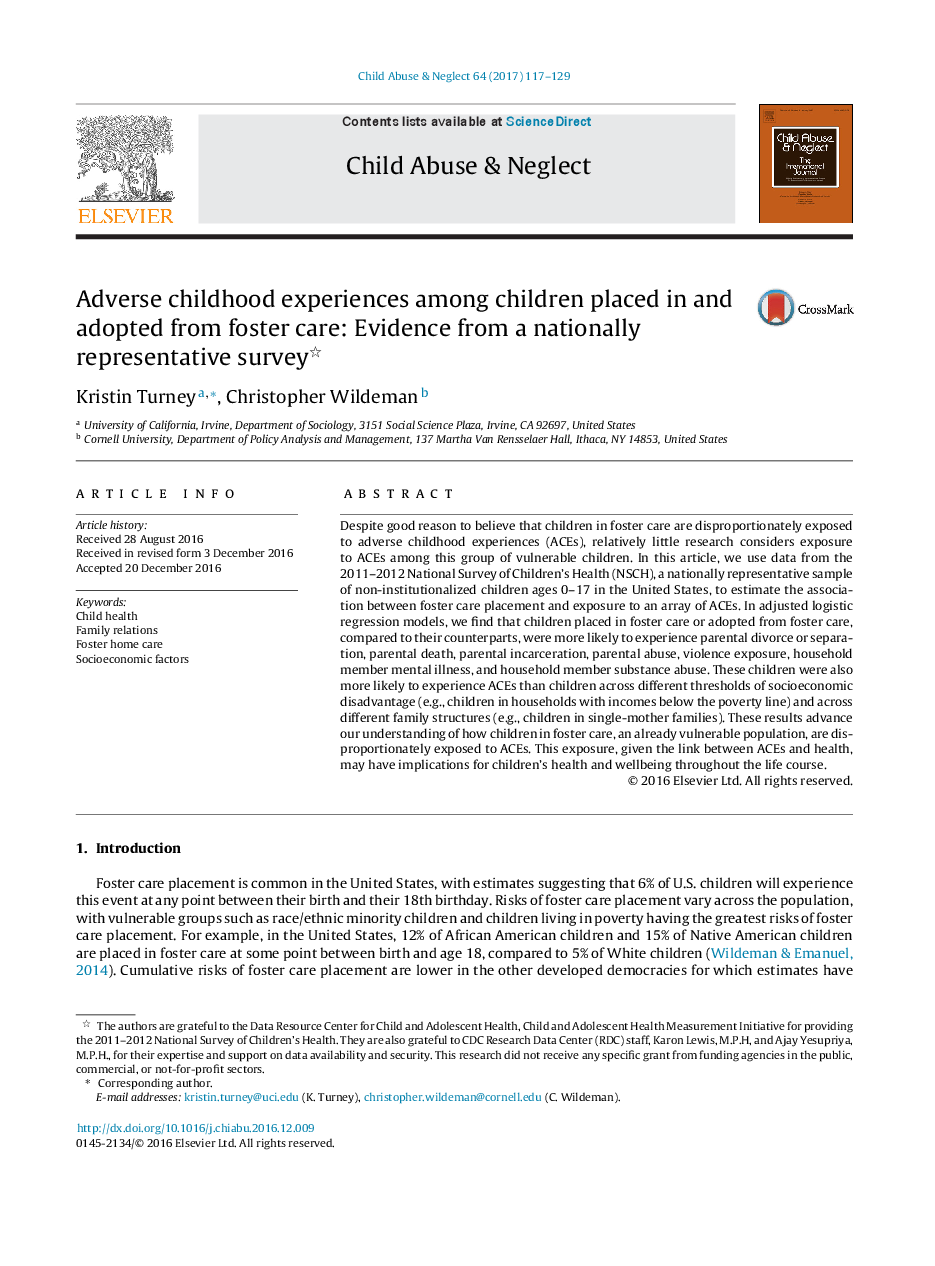ترجمه فارسی عنوان مقاله
تجربیات دوران کودکی در میان کودکان که در مراقبت های پرستاری قرار می گیرند و مورد پذیرش قرار می گیرند: شواهد از یک نظرسنجی نماینده ملی است
عنوان انگلیسی
Adverse childhood experiences among children placed in and adopted from foster care: Evidence from a nationally representative survey
| کد مقاله | سال انتشار | تعداد صفحات مقاله انگلیسی |
|---|---|---|
| 129214 | 2017 | 13 صفحه PDF |
منبع

Publisher : Elsevier - Science Direct (الزویر - ساینس دایرکت)
Journal : Child Abuse & Neglect, Volume 64, February 2017, Pages 117-129
ترجمه کلمات کلیدی
سلامت کودک، روابط خانوادگی، مراقبت از خانه فاستر، عوامل اجتماعی-اقتصادی،
کلمات کلیدی انگلیسی
Child health; Family relations; Foster home care; Socioeconomic factors;

